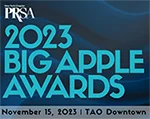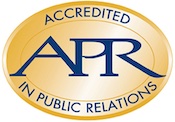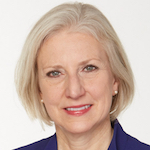The Society, while providing many benefits to members and the PR industry, also has compiled a record of various ethical and legal abuses.
--Founded in 1947, it created in 1954 a “Code of Ethics” that had two articles that were in violation of anti-trust laws.
They forbade members from pitching each other’s accounts or jobs (although it was permissible to pitch accounts and jobs of non-members) and forbade firms from charging based on results (contingency fees).
The Federal Trade Commission forced the Society to sign a consent decree in 1977 that removed the articles (sample codes needed for non-subscribers are trial & issue).
--From 1978 to 1994, when an O’Dwyer expose ended the practice, the Society sold hundreds of thousands of copies of authors’ materials without their permission.
The O’Dwyer Co. was sued for $21 million in 1994 on charges that it inaccurately covered a talk to the 1993 Society conference by Dean Rotbart who noted that ads and news tips can influence news coverage. O’Dwyer coverage did not dispute that but noted any such influence on story placement was barred by the Society’s Code. PRS videotaped the talk with two cameras but refused to sell it to the O’Dwyer Co. or anyone. A federal court called Jack O’Dwyer “a good reporter” and dismissed all charges.
--The PR Service Council, a New York group of more than 40 service firms, was formed in the late 1980s to seek better treatment for exhibitors at the national conference including a hall near the sessions and a classroom so services could explain new technology. The Society, irked at the pressure, closed the hall from 1995-99. The Council folded.
--NPC chides PRS, asks removal of O’Dwyer boycott.
--PR professors plead for PDF of members’ directory.
--Bylaws re-write by 2009 Assembly was a costly travesty because 56 proxy votes were used and only a few of the articles were presented for vote.
--2010 chair Gary McCormick and COO Bill Murray spend one hour in Jack O’Dwyer’s office March 19, 2010 telling him PRS has “chosen” not to deal with him.
--Four PRS Fellows put 15 questions to PRS leaders in 2010 (such as where is the list of Assembly delegates) and get snubbed.
--PRS VP-PR posts on newsroomink.com that PRS is “a private organization” and can bar “any and all reporters from attending.” Entry is one of 40 in a 10,637-word discussion.
--PRS blocks Committee for a Democratic PRS from using member e-mail list. Sandra Fathi, president of PRS/NY, is told this on a teleconference.
--PRS shuts discussion of 23 pages of charges against O’Dwyer after four days and one O’Dwyer rebuttal.
--PRS blocks MyMediaInfo from O’Dwyer coverage at 2011 conference.
--PRS delegate threatens to beat O’Dwyer “to a pulp.”
--Assembly delegate steals whole day of O’Dwyer notes in 2003 as O’Dwyer talks with Gerry Corbett; PRS turns deaf ear to pleas for tape of Assembly.
--PRS ignores Condorcet and other free secure e-mail election capabilities that would let members elect officers based on stands on various issues such as APR.
--Seventeen of 20 nominating committee members are APR when only four should be because only 18% of members are APR).
--PRS leadership is dominated by PR people from South and West. PRS short-changes New York by having only two national conferences in the city (1992 and 2004) with none currently scheduled.
--UNESCO says murders of journalists and interference with their duties is worldwide scandal and especially the “impunity” granted to offenders by governments and professional associations; 51-page study published. PRS leaders comment on many issues but do not mention harassment of journalists.


 PRSA-NY today announced its five honorary co-chairs for its Big Apple Awards ceremony gala slated for TAO Downtown on Nov. 15.
PRSA-NY today announced its five honorary co-chairs for its Big Apple Awards ceremony gala slated for TAO Downtown on Nov. 15. PRSA-NY president Carmella Glover today issued a "heartfelt apology" on behalf of the chapter for her Oct. 14 message that "caused disappointment and hurt to some of our valued members."
PRSA-NY president Carmella Glover today issued a "heartfelt apology" on behalf of the chapter for her Oct. 14 message that "caused disappointment and hurt to some of our valued members." The leadership of Public Relations Society of America is backing a move to change the current “must-have” APR accreditation to “strongly preferred” as a requirement for a seat on its board of directors.
The leadership of Public Relations Society of America is backing a move to change the current “must-have” APR accreditation to “strongly preferred” as a requirement for a seat on its board of directors. Public Relations Society of American today named Linda Thomas Brooks CEO, succeeding CFO Phil Bonaventura, interim chief since July 2019.
Public Relations Society of American today named Linda Thomas Brooks CEO, succeeding CFO Phil Bonaventura, interim chief since July 2019.


 Have a comment? Send it to
Have a comment? Send it to 
No comments have been submitted for this story yet.